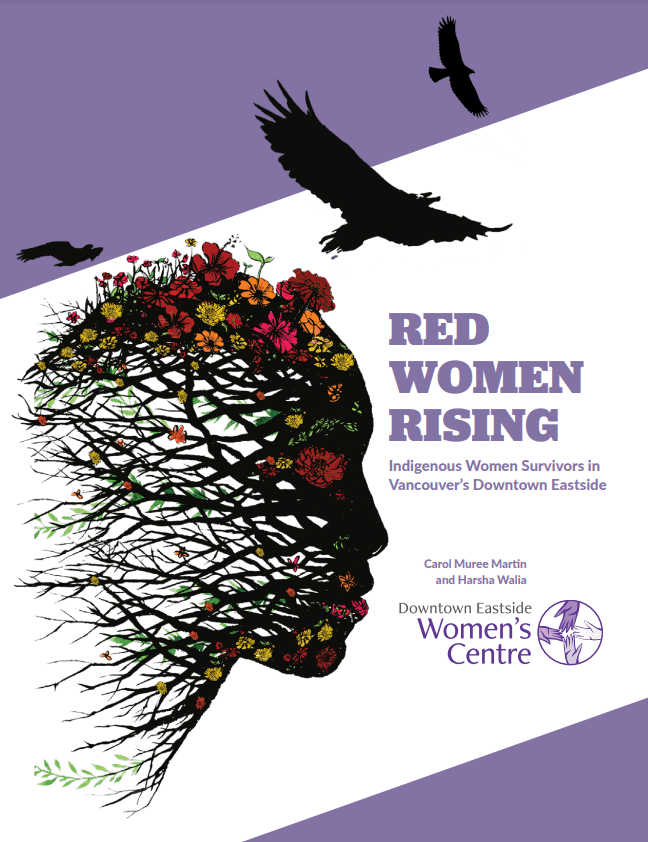19 search results
for
Alternative solutions
Recommendations to end criminalization of Indigenous women in the DTES
Access to justice
Recommendation 162: Expand the number and scope of courts like B.C.’s First Nations Court that emphasize healing plans over punishment.-
Category and theme:
Groups affected:
Location of recommendation:
Recommendations to end criminalization of Indigenous women in the DTES
Access to justice
Recommendation 163: Expand funding for community-based and court-based victim services.-
Category and theme:
Audience:
Groups affected:
Location of recommendation:
Recommendations to end criminalization of Indigenous women in the DTES
Access to justice
Recommendation 167: Implement existing recommendations in Justice Reform for British Columbia by Community Legal Assistance Society, Pivot Legal Society, West Coast LEAF, and B.C. Civil Liberties Association.-
Category and theme:
- Access to justice ,
- Alternative solutions ,
- Courts ,
- Decolonization and Indigenous rights ,
- Housing and homelessness ,
- Human rights system ,
- Indigenous issues in policing and justice ,
- International human rights ,
- Policing ,
- Policing and the criminal justice system ,
- Poverty ,
- Poverty and economic inequality ,
- Public education and reconciliation ,
- Public services
Groups affected:
Location of recommendation:
Recommendations to end criminalization of Indigenous women in the DTES
Correctional facilities
Recommendation 168: Full decarceration of Indigenous women in the federal and provincial corrections system. No Indigenous woman should ever be sentenced into a colonial system.-
Category and theme:
Audience:
Groups affected:
Location of recommendation:
Recommendations to end criminalization of Indigenous women in the DTES
Correctional facilities
Recommendation 169: Increased resourcing, capacity, and funding for section 81 Healing Lodges. Indigenous nations and urban Indigenous organizations must be able to operate Healing Lodges on a long-term basis and with full wrap-around supports. Change the policy of not allowing women with maximum-security classifications to be at CSC-operated healing lodges and increase access to all healing lodges.-
Category and theme:
Audience:
Groups affected:
Location of recommendation:
Recommendations to end criminalization of Indigenous women in the DTES
Correctional facilities
Recommendation 170: Increased resources, capacity, and funding for section 84 agreements so that Indigenous nations are compensated and can provide full support for Indigenous women seeking section 84 releases. Indigenous communities and organizations should exercise control and self-determination in the development and implementation of reintegration plans.-
Category and theme:
Audience:
Groups affected:
Location of recommendation:
Recommendations to end criminalization of Indigenous women in the DTES
Correctional facilities
Recommendation 171: Start all Indigenous women prisoners at a minimum-security level and remove the requirement to automatically incarcerate Indigenous women in a maximum security facility for the first two years of a murder sentence.-
Category and theme:
Audience:
Groups affected:
Location of recommendation:
Recommendations to end criminalization of Indigenous women in the DTES
Correctional facilities
Recommendation 177: Establish alternatives to Correctional facilities for all mothers who are primary caregivers or expected to give birth while in prison. In the immediate, implement child-friendly mother-child units in all Correctional facilities so no child is separated from their mother.-
Category and theme:
Audience:
Groups affected:
Location of recommendation:
Recommendations to end criminalization of Indigenous women in the DTES
Correctional facilities
Recommendation 178: For women who do not have primary custody of their children, prioritize the social bond between incarcerated mothers and their children. This includes:- Funding for families to cover the costs and logistics of transportation for visits and child-friendly practices during visitation including visitation hours scheduled after school hours, no body searches of children, and allowance for physical contact.
- Visitation outside the prison setting.
- Free and unlimited phone calls and introduce video calling technologies, in addition to the right to open in-person visits.
- Family reunification as a priority post-release by providing all the necessary supports including housing, child care, and parenting support.
-
Category and theme:
Audience:
Groups affected:
Location of recommendation:
